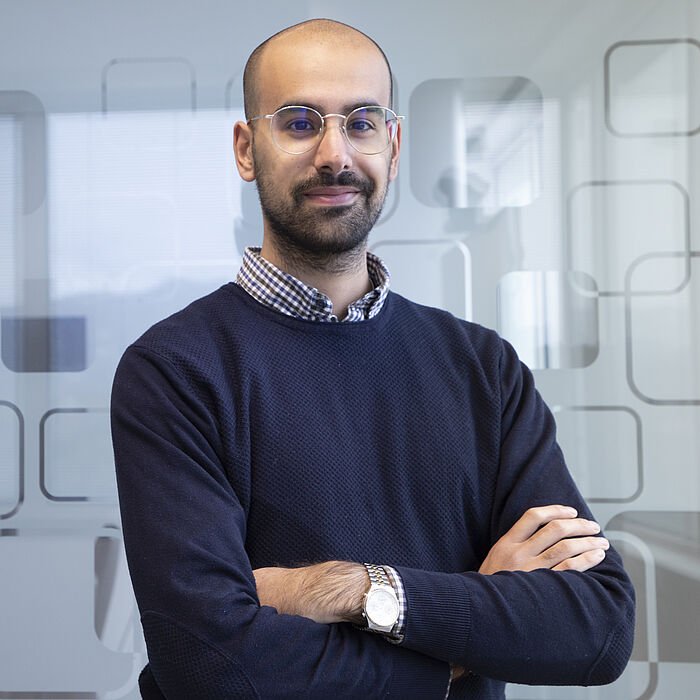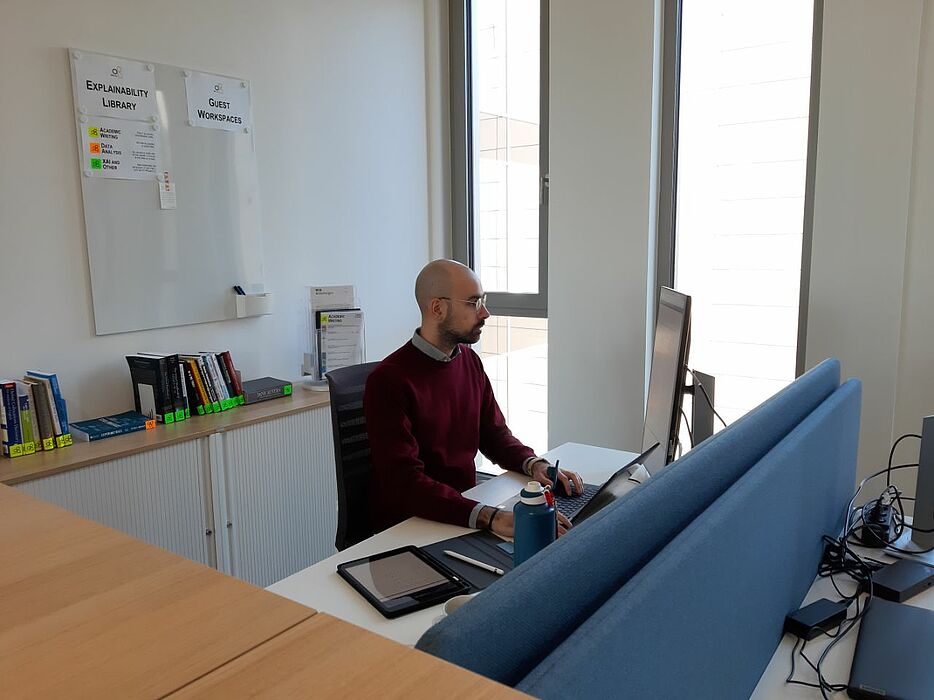Meet Marco Matarese, a PhD student from the Italian Institute of Technology and the University of Genoa, who is currently a visiting researcher in TRR 318 project A01. His research focuses on Explanable Artificial Intelligence (XAI) and Human-Robot Interaction (HRI), in particular the impact of XAI on how humans interact with and perceive robots. In this interview, he describes his time at TRR 318 so far, the specifics of his research in the A01 project, and where he sees the potential and dangers in the use of AI.
How has TRR 318 come to your attention?
MM: In the best way it could have happened: two people chatting during a conference. One of my supervisors at the Italian Institute of Technology, Dr. Alessandra Sciutti, met Professor Katharina Rohlfing at a conference, and she told my supervisor about this promising project on explainability. When she was back in Italy, she advised me to have a look as I was looking for a place to do my research period abroad. Then, I read some papers and I liked what I read, so I applied for a visiting fellowship.
What are you working on in project A01 at TRR 318?
MM: TRR 318's project A01 “Adaptive explanation generation” was a perfect match for my research interests. Right now, I am focusing on assessing how much informative an explainable robot could be in collaborative decision-making tasks. The collaboration with the TRR 318 may lead to the definition of a partner model by which to build personalized and adaptive explanations. This method differs from more classical XAI approaches, as the explanatory model changes during the explanation, it adapts 'live' to the dialogue partner.
What do you like most about your work on the TRR 318 project so far?
MM: It has been great from the beginning because I have been warmly welcomed by the members of Project A01. What I like the most is the opportunity to be exposed to ideas, methods, and research questions that are so different from what I was used to. A multidisciplinary approach was what I was looking for and I am really enjoying it.
What is your bold thesis - or not so bold thesis - on AI?
MM: I think we all need to approach AI with more consciousness. This may seem like a strange statement, how can consciousness be bold?! But I was already convinced of this before the appearance of ChatGPT and the spread of such technology in our daily lives has reinforced this idea in me. Only by knowing more about AI, its limitations and strengths, can people use it well and not see it as a “magic box” that does everything for them.
Complete the sentence “AI is...”
MM: AI is… an instrument, and like all the instruments it can be used well or badly. I do think that AI can do its best when it is used in conjunction with human intelligence and sensibility. So, the key will be to promote a more aware use of AI and to move towards a more conscious use of such technology to avoid an over-trust in intelligent machines.
Is there any other thought you would like to share?
“Sharing” is the key word. In my so far short journey in the research world, the most valuable thing I have experienced is sharing and discussing ideas and points of view with people from different cultures and backgrounds. Especially for us – Ph.D. students – we often get stuck in our research projects, but I think it is worth breaking out of our comfort zone to talk to others. It seems scary at first, but there are lots of nice people to talk to and learn from.
The PhD Visiting Fellowship at TRR 318:
The RTG project at TRR 318 “Constructing Explainability” invites PhD students like Marco to work on topics relevant to the research area. Visiting Fellows in Bielefeld or Paderborn will have access to state-of-the-art equipment and laboratories as well as to the services of the University Library, and can participate in all activities related to the project, such as reading groups, workshops, conferences, lectures, etc. The fellowship comes with a budget to cover travel and accommodation expenses. If you are interested in joining the TRR 318 as a Visiting Fellow, you can find all the relevant information here.
Further Information
- Research Training Group of TRR 318
- Project A01 „Adaptive explanation generation“
- Information on the Visiting Fellowship


